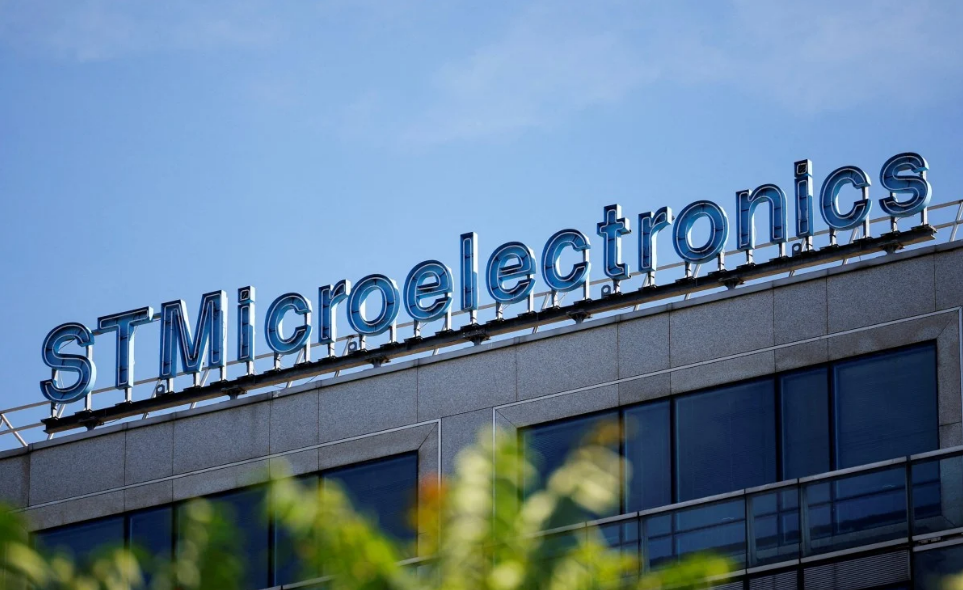As the global automotive industry transitions to electrification, semiconductors play an increasingly important role in modern vehicles, especially in areas such as autonomous driving, in-vehicle electronics, and battery management systems. Against this backdrop, Hua Hong Semiconductor, China's second-largest semiconductor foundry, has launched a new collaboration with European semiconductor giant STMicroelectronics (STMicro). STMicroelectronics will work with Hua Hong Semiconductor to produce 40nm microcontrollers for the automotive and industrial markets in China starting in 2024. This partnership strengthens STM's localization strategy in the context of rising geopolitical tensions and the growth of China's EV market. This move not only reflects the rise of Hua Hong Semiconductor in the global semiconductor industry, but also reveals the strategic position of the Chinese market in the global automotive industry.
Background of Hua Hong Semiconductor's cooperation with STMicro
Hua Hong Semiconductor has recently started producing traditional chips for STMicro, which are mainly used in the automotive sector. The automotive industry's demand for chips for these traditional process nodes continues to grow, especially in the Chinese market, and is becoming more urgent with the rapid adoption of connected cars (smart cars, autonomous vehicles) and electric vehicles. STMicro's goal is to meet the increasing demand for semiconductors in Chinese mainland, especially in the field of automotive electronics, through its cooperation with Hua Hong Semiconductor.
As the world's leading supplier of automotive semiconductors, STMicro has long relied on other foundries, such as TSMC, to produce its chips. However, as the U.S.-China tech war intensifies, STMicro has decided to strengthen its cooperation with local Chinese companies, especially Hua Hong Semiconductor, which not only ensures the stability of the supply chain, but also reduces the potential impact of external political risks on its business. "By partnering with Hua Hong, ST will be able to respond more quickly to the needs of the Chinese market and seize opportunities in fast-growing areas such as electric vehicles," Chery said.”
Opportunities and challenges in China's automotive market
China's automotive market, especially in the field of electric vehicles, has grown rapidly in recent years. According to statistics from the China Association of Automobile Manufacturers, China's new energy vehicle sales will exceed 9 million units in 2023, accounting for a continuous increase in global sales. With the Chinese government's promotion of the "intelligent connected car" policy and the construction of charging facilities, the demand for automotive semiconductors is growing rapidly.
For semiconductor suppliers, the automotive industry needs not only high-performance computing chips, but also traditional chips with low power consumption and high reliability. These traditional chips are mostly used in control systems, in-vehicle sensors, and other automotive components that do not require advanced process technology. Therefore, although chip technology continues to advance to advanced nodes such as 5nm and 3nm, legacy processes (such as 28nm and above processes) still occupy an important position in the automotive industry.

Pictured: China's second-generation foundry will produce chips for European chipmaker STMicroelectronics (Source: Reuters)
Hua Hong Semiconductor, as the second largest semiconductor foundry in China, focuses on providing traditional process services including 28nm and 40nm, which is exactly in line with STMicro's needs in the automotive market. By handing over the production of these traditional chips to Hua Hong Semiconductor, STMicro will not only be able to improve cost efficiency, but also better meet the demand for automotive semiconductors in the Chinese market amid global supply chain constraints.
Technological autonomy and supply chain stability
With the continuous heating up of international trade and technological competition, especially the US sanctions on Chinese technology companies, the independence and controllability of China's semiconductor industry has become a key issue. Through its partnership with STMicro, Hua Hong Semiconductor has not only demonstrated its technical capabilities in the global automotive chip manufacturing field, but also promoted the self-sufficiency of China's semiconductor industry.
This cooperation is significant far beyond market share gains, it also represents the increased importance of China's semiconductor industry in the global supply chain. For STMicro, moving production to Hua Hong Semiconductor is not just about risk aversion, but also about taking a more advantageous position in the Chinese market. Especially in the field of new energy vehicles, the rapid development of China means that the demand for high-quality semiconductors will only continue to grow, and STMicro is helping to improve its competitiveness in the Chinese market by strengthening its cooperation with local suppliers.
Looking to the future
The cooperation between Hua Hong Semiconductor and STMicro is not only a supply chain collaboration between the two companies, but also a microcosm of the changing landscape of the global semiconductor industry. With the continuous expansion of China's influence in the global automotive industry and the gradual improvement of the technical level of the domestic semiconductor industry, China may become a dominant position of the global semiconductor industry in the future.
In addition, Hua Hong Semiconductor's partnership with STMicro may further boost the rise of other semiconductor manufacturers in China. As more companies pay attention to the automotive electronics market and increase R&D investment, China will not only become a global production base for automotive semiconductors in the future, but also a core area for innovation and R&D.
This partnership signifies that more global companies are stepping up their cooperation with the Chinese market to take advantage of its huge business potential and stable supply chain. STM's CEO, Jean-Marc Chery, said that having local manufacturing in China is crucial to its competitive position, as the Chinese market is the largest and most innovative market in the field of electric vehicles, and it is impossible to compete effectively from the outside.





